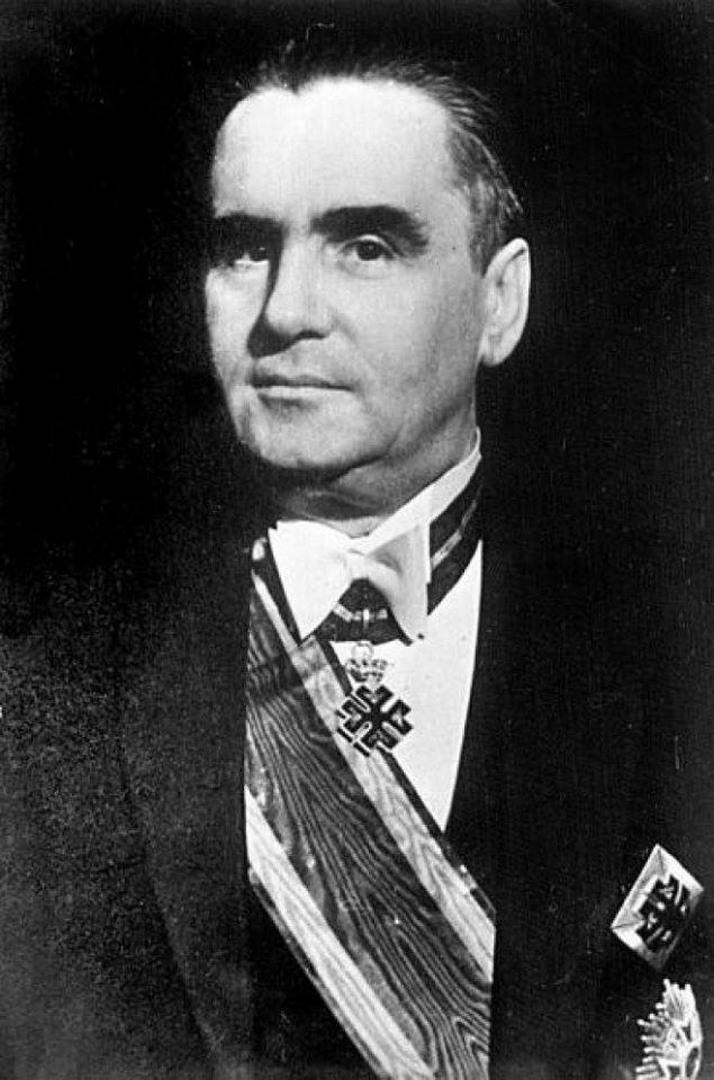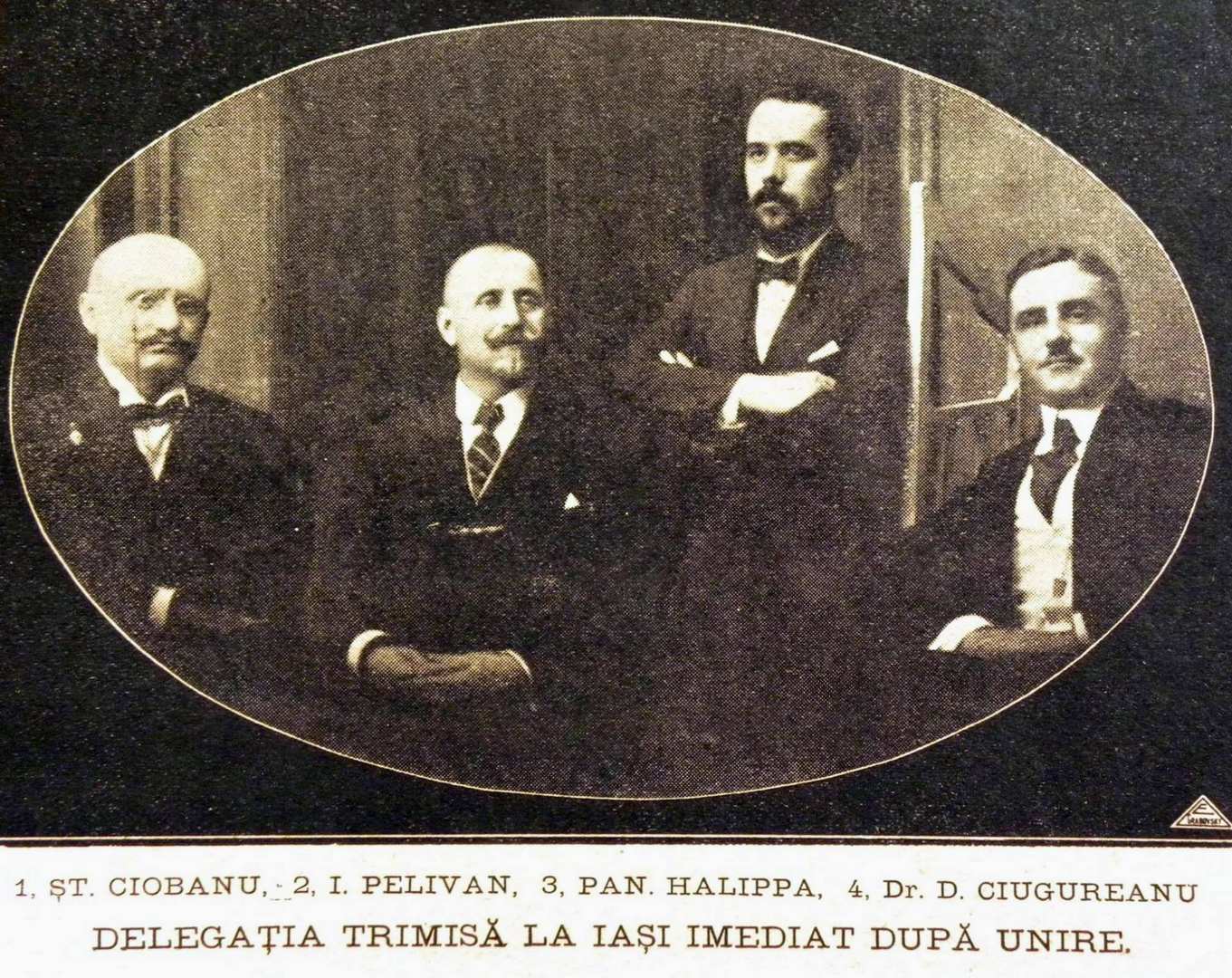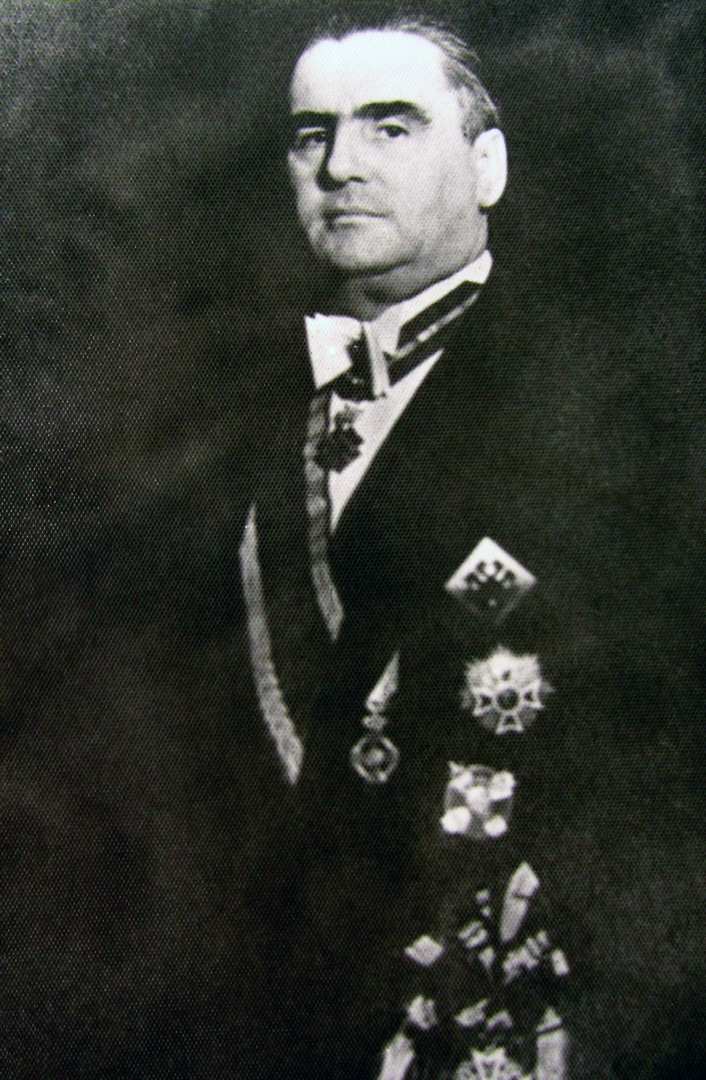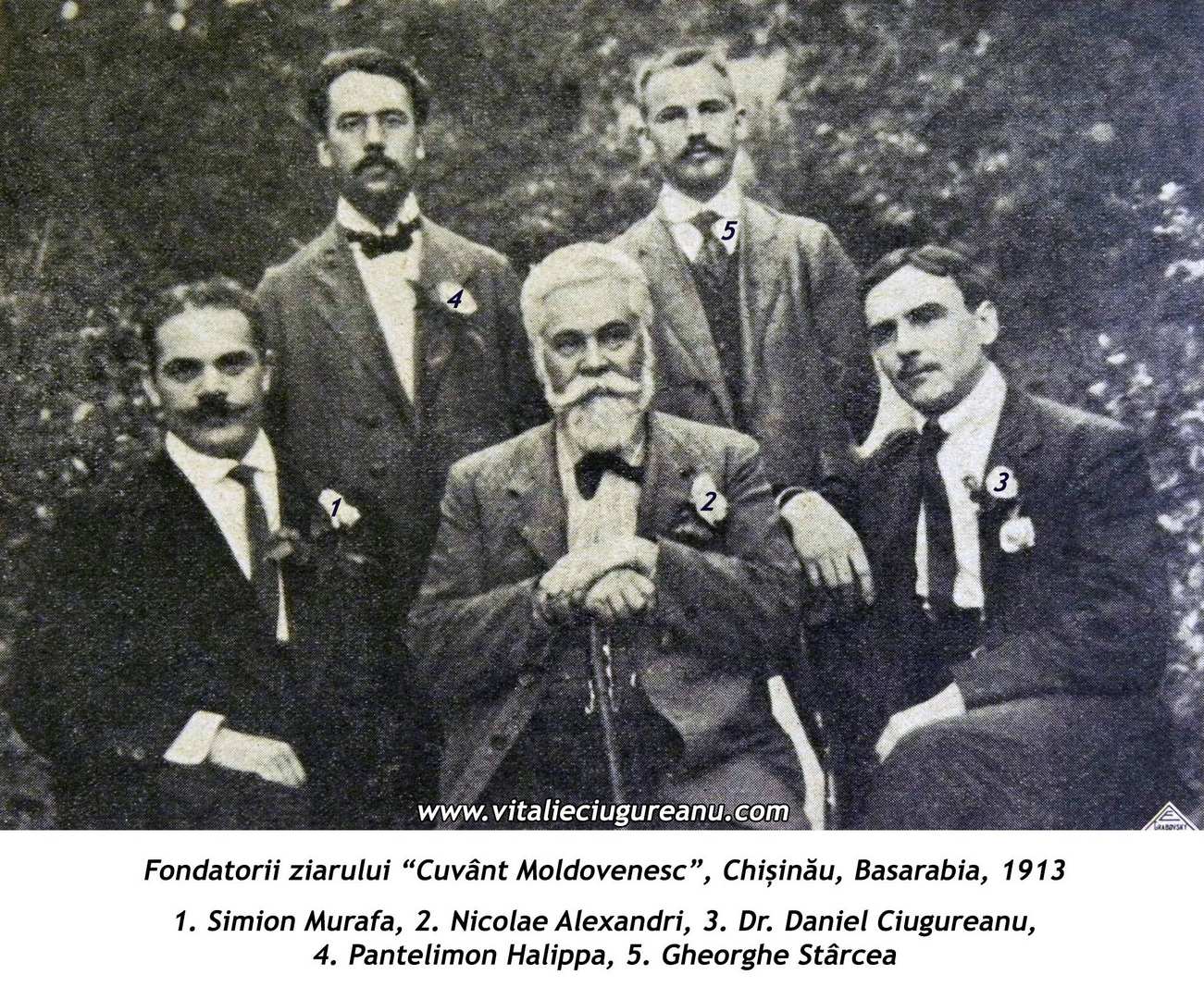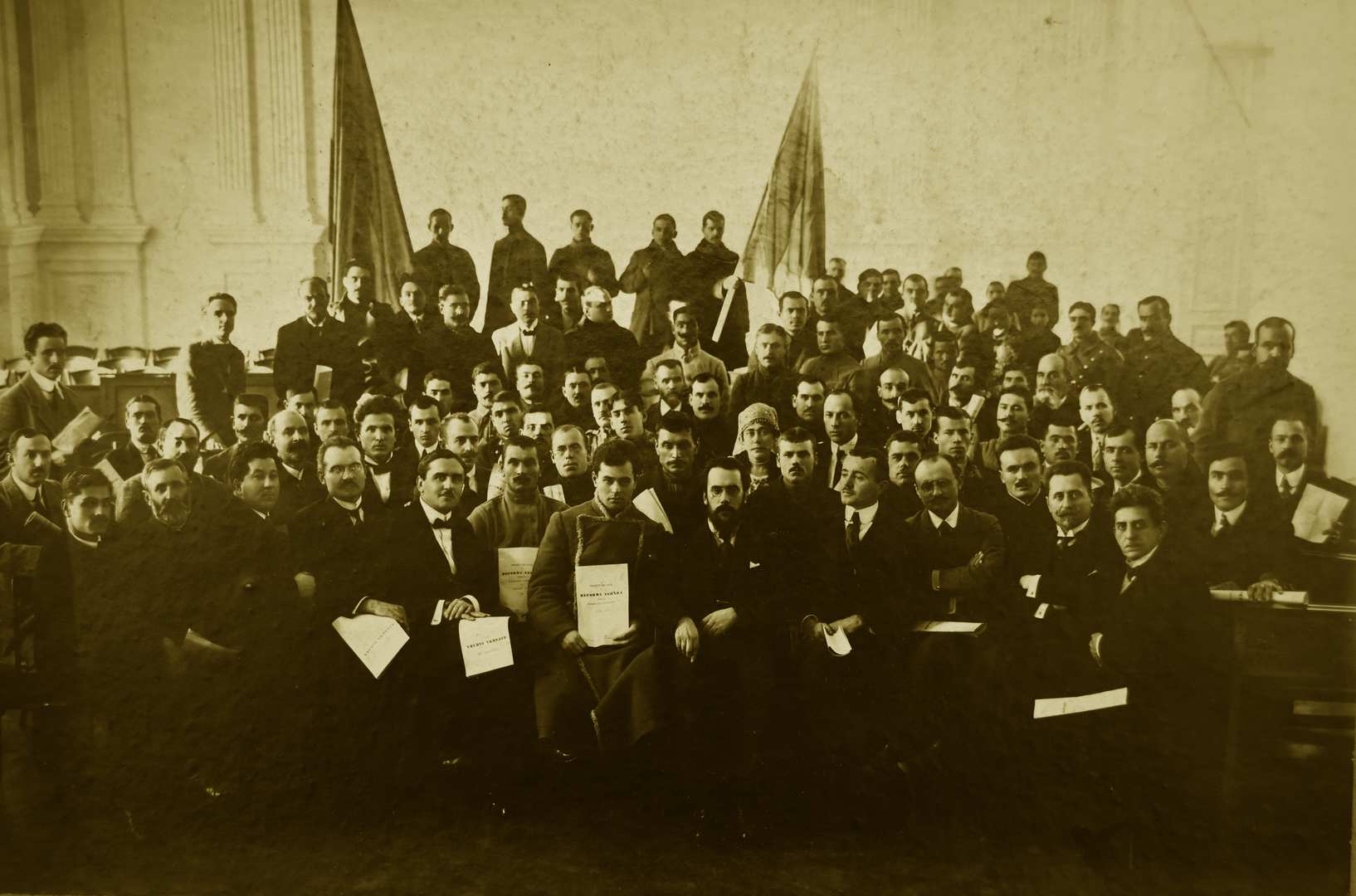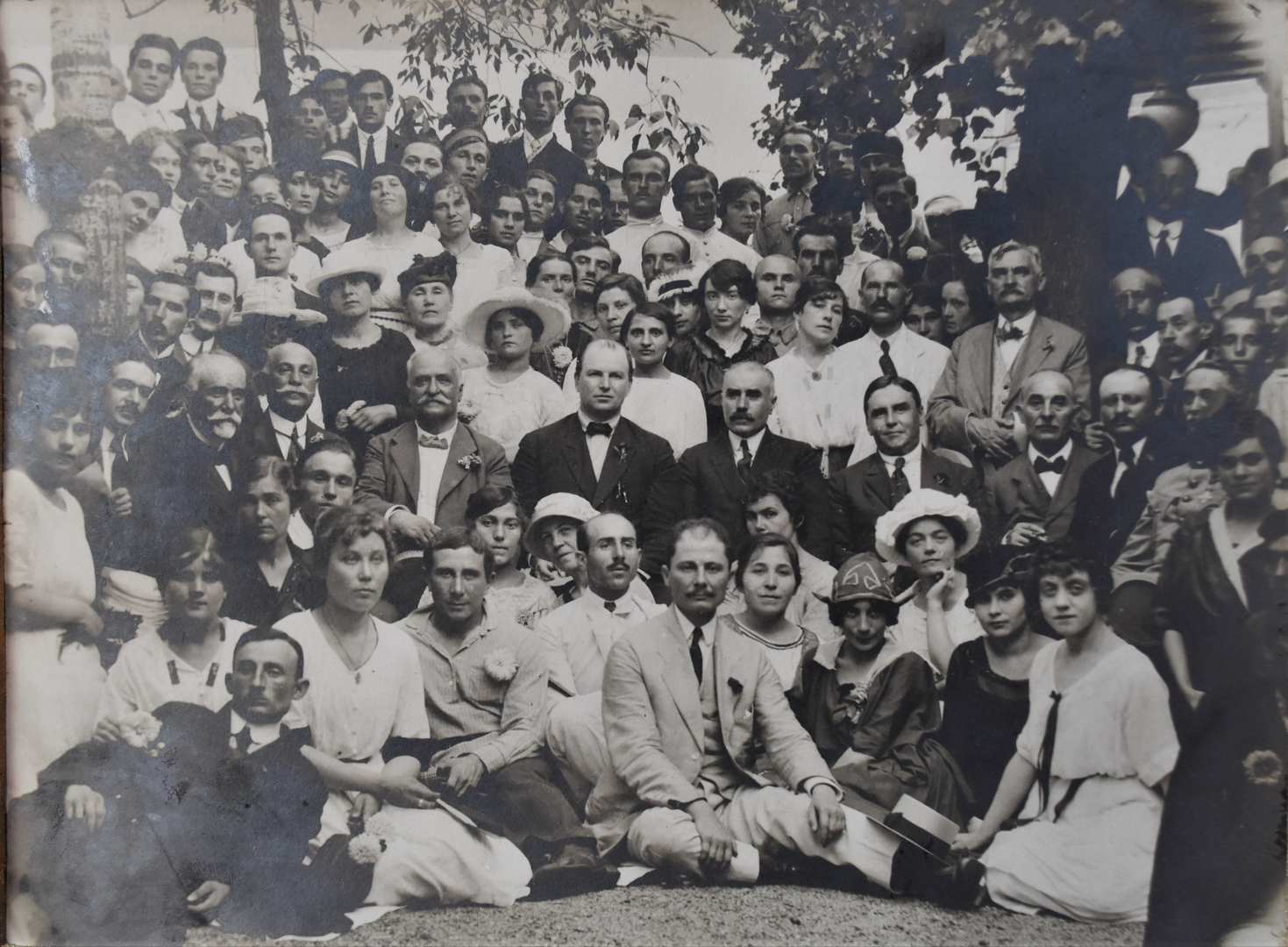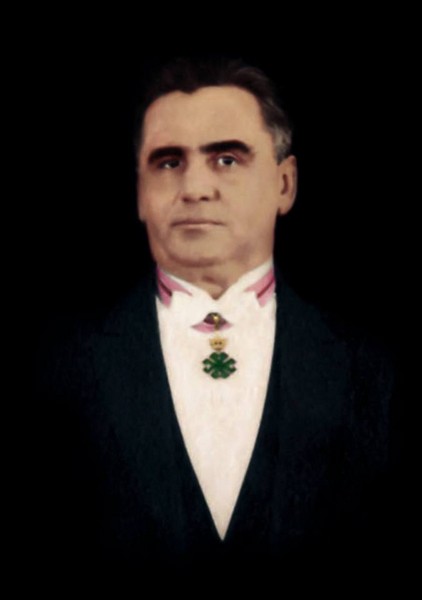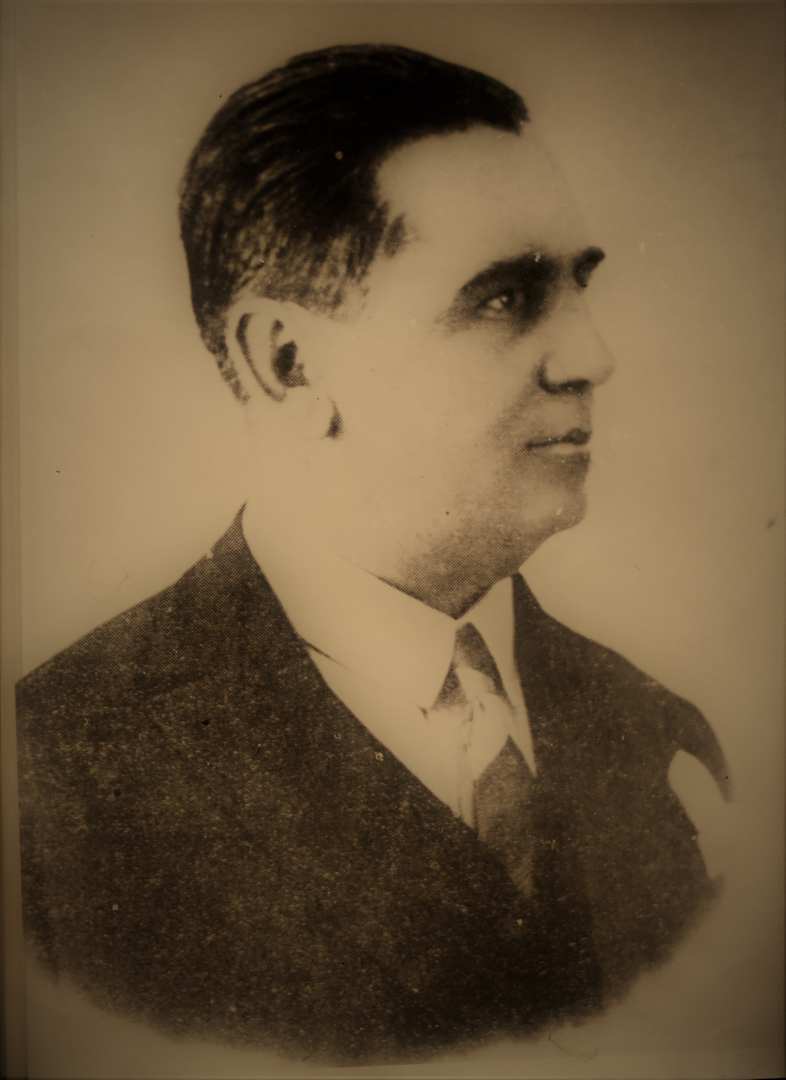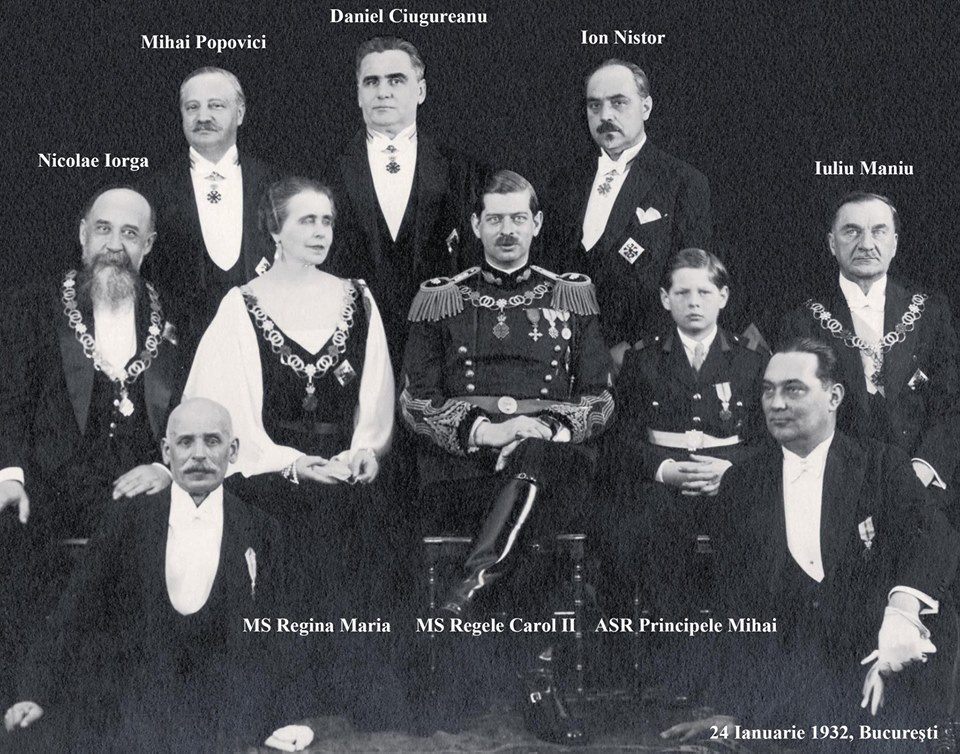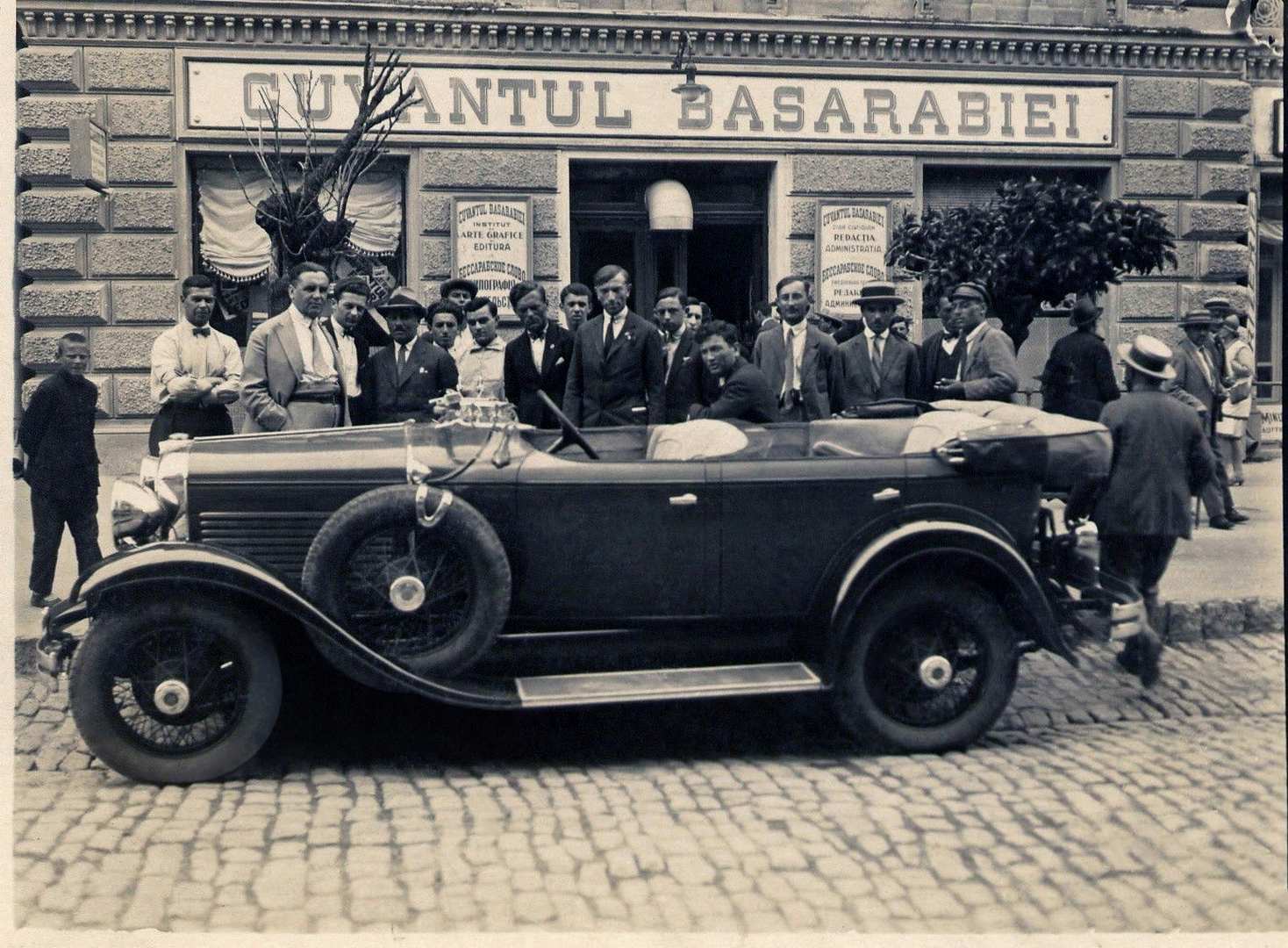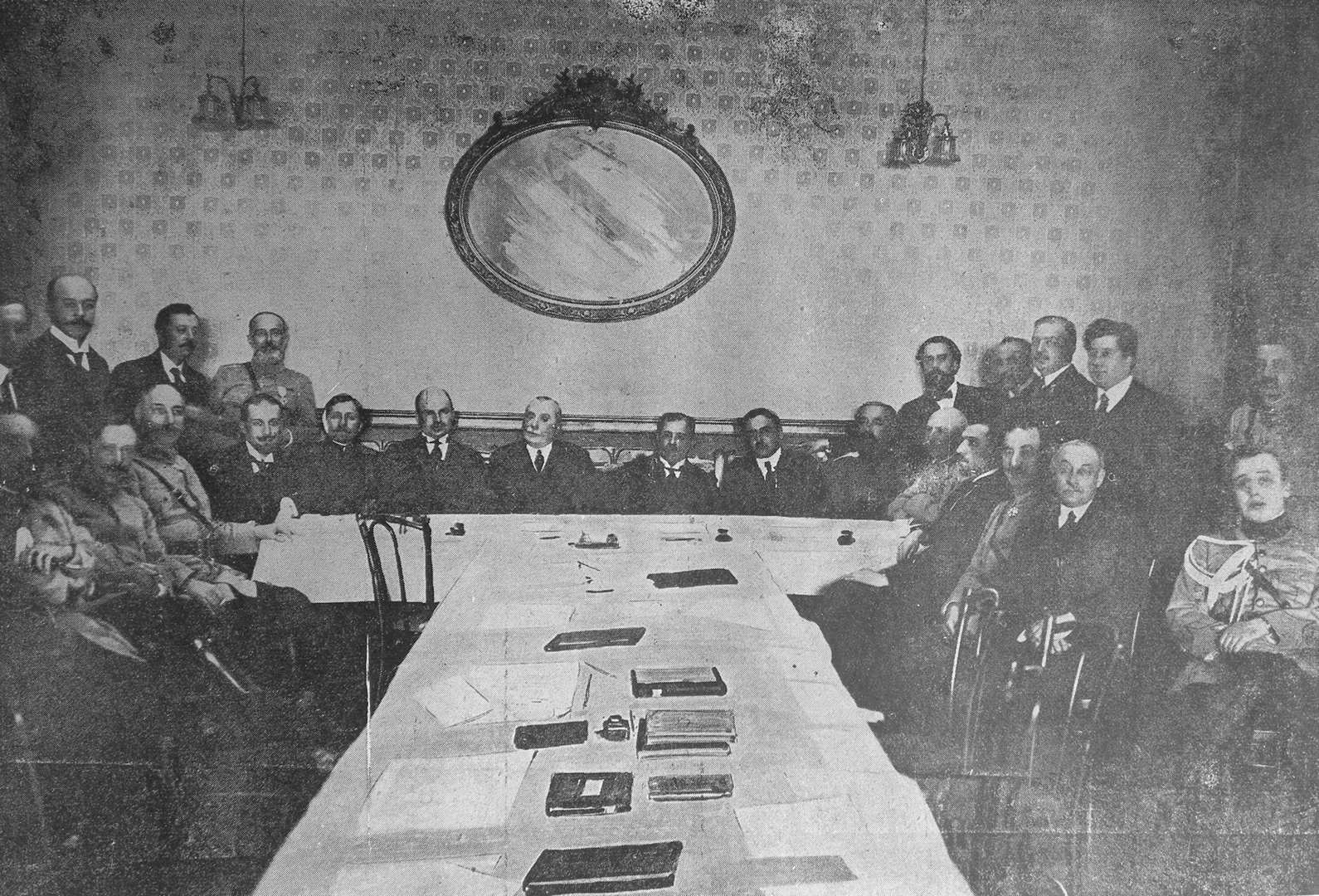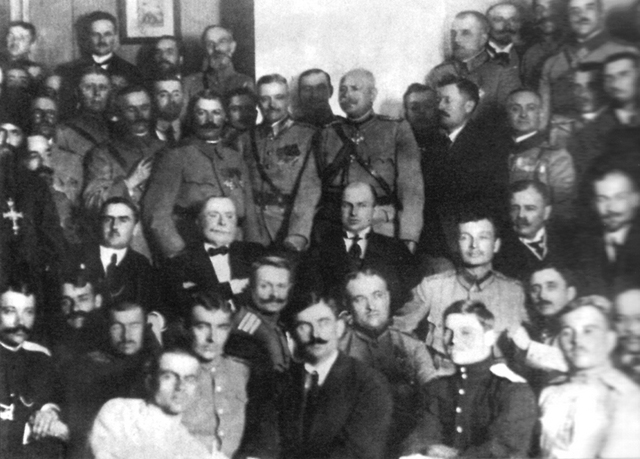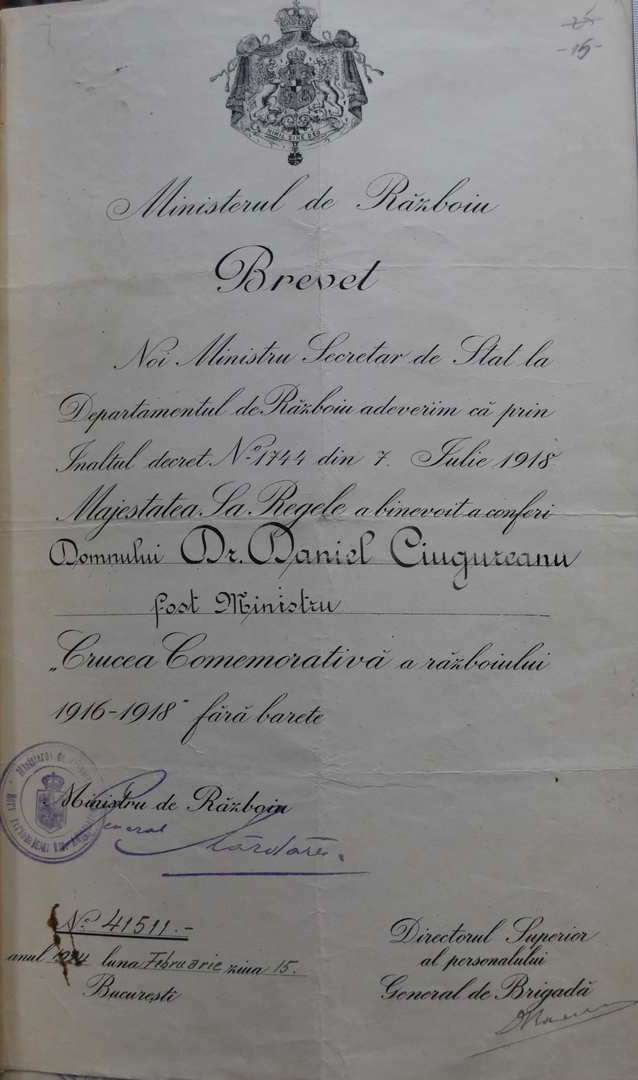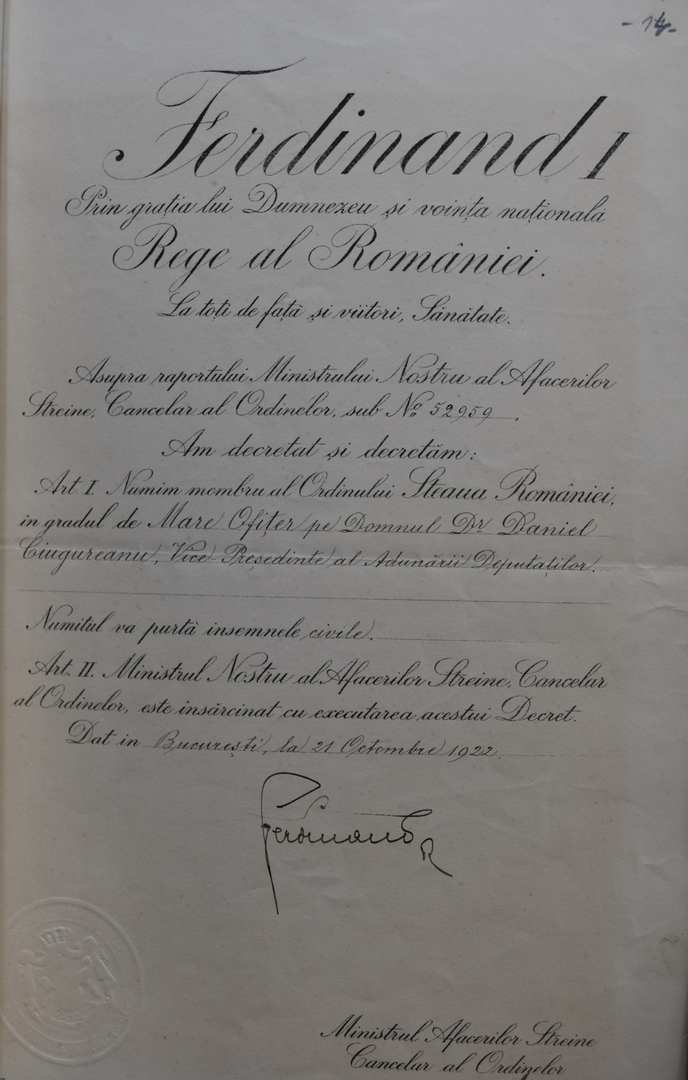Daniel Ciugureanu
DANIEL CIUGUREANU
1885-1950
“We are a nation that has been torn, enslaved and persecuted for hundreds of years. If today we can hope for better days, if we see ourselves gathered within more righteous borders, we owe it to the victory of the national principle. The more this principle will triumph further on, the stronger the very foundation of our nation will be.”
Doctor of medicine, member of Sfatul Ţării in Chişinău, prime minister of the Moldovan Democratic Republic, minister for Bessarabia in four governments of Greater Romania, vice-speaker of the Chamber of Deputies, vice-president and president of the Senate, Daniel Ciugureanu was one of the creators of Greater Romania, who made his crucial contribution to the emancipation of the Bessarabian Romanians, his role in the union of Bessarabia with Romania being comparable to that played by Iuliu Maniu in the union of Transylvania. He went down in the national history as the prime minister of Bessarabia under whose term in office the independence of the Moldavian Democratic Republic (24 January 1918) and its union with Romania (27 March 1918) were proclaimed. As early as his student days he distinguished himself as leader of the struggle for the national revival of the Romanians in Bessarabia. In 1908 he set up the Deşteptarea circle, which planned to contribute to the awakening of the Romanians’ national sentiment in order to get out from under the rule of the Russian Empire and to unite with Romania. The activity of the circle was suspended, and in 1912 Daniel Ciugureanu was arrested by the tsarist political police. He was released a few months later. He enrolled in the National Moldavian Party and was the editor of the Cuvânt moldovenesc publication, which played an important part in the spiritual life and the movement for the national unity of the Bessarabian Romanians. He participated in all the stages of the union making, which is why Nicolae Iorga said that “when you say Bessarabia, you remember Ciugureanu, and when you say Ciugureanu, you remember Bessarabia.” He was on the delegation that presented the Union document to King Ferdinand. He opposed the revisionist tendencies of Ukraine, which wanted to annex the territory of Bessarabia. He struggled against the danger of bolshevizing Bessarabia when the Russian soldiers, in their retreat to Russia from the front, caused looting and crimes among the population. To put an end to anarchy and the hotbeds of unrest in Bessarabia, Daniel Ciugureanu was the one who called for the firm intervention of the Romanian troops for the establishment of order and security in that country.
He prepared the separation of Bessarabia from the Russian Empire, sending diplomatic notes to several states with a view to their recognizing the independence (Great Britain, France, Germany, the Netherlands, the USA, Spain, Portugal, Norway, Sweden, Italy, Greece, and Turkey). He negotiated, in Paris, the issue of the recognition of the Union of Bessarabia with Romania. He had the mission to meet Winston Churchill, but also other French and American political leaders and convince them of the legitimacy of the Union.
He continued to militate for the defence of Romania’s territorial integrity, warning that for “many decades from now on, the most important concern of the Romanian State will be the Russian issue.” For his intense unionist activity, the Russians did not forgive him, and in 1926 they sentenced him to death in absentia. His being a member of Sfatul Ţării also entailed persecution during the Soviet occupation. He was arrested by the communist Securitate on the night from the 5th to the 6th of May 1950, being taken from his home in Bucharest, together with other members of the Romanian political elite. Strongly affected by the night-time arrest and the uncertainty about his destiny, he suffered a stroke while he was taken to prison by van. He was the first politician to die from among the high-ranking dignitaries brought to Sighet. He was buried in secret, at night, in the common cemetery of the Sighetu Marmaţiei prisoners, and his last resting place has not yet been identified.

